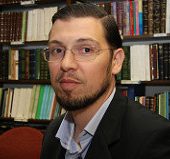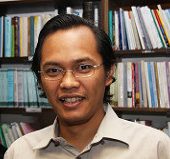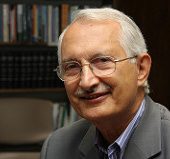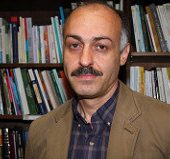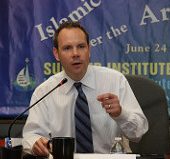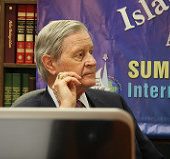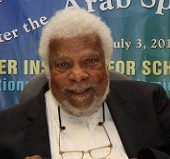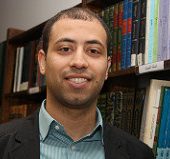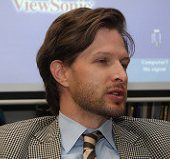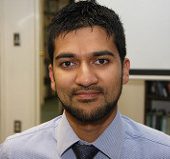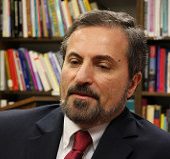Abdulaziz Sachedina is Professor and IIIT Chair in Islamic Studies at George Mason University in Fairfax, Virginia. Dr. Sachedina, who has studied in India, Iraq, Iran, and Canada, obtained his Ph.D. from the University of Toronto. He has been conducting research and writing in the field of Islamic Law, Ethics, and Theology (Sunni and Shiite) for more than two decades. In the last ten years he has concentrated on social and political ethics, including Interfaith and Intrafaith Relations, Islamic Biomedical Ethics and Islam and Human Rights. Dr. Sachedina’s publications include: Islamic Messianism (State University of New York, 1980); Human Rights and the Conflicts of Culture, co-authored (University of South Carolina, 1988) The Just Ruler in Shiite Islam (Oxford University Press, 1988); The Prolegomena to the Qur’an (Oxford University Press, 1998), The Islamic Roots of Democratic Pluralism (Oxford University Press, 2002), Islamic Biomedical Ethics: Theory and Application (Oxford University Press, February 2009), Islam and the Challenge of Human Rights (Oxford University Press, September 2009), in addition to numerous articles in academic journals. He is an American citizen born in Tanzania.
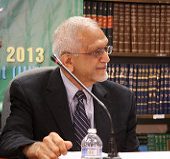
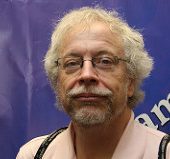
Nathan J. Brown, a professor of political science and international affairs at George Washington University, is a distinguished scholar and author of six well-received books on Arab politics. His expertise is on Islamist movements, Palestinian politics, and Arab law and constitutionalism. Brown’s latest book, When Victory Is Not an Option: Islamist Movements in Arab Politics, was published by Cornell University Press in early 2012. His current work focuses on Islamist movements and their role in politics in the Arab world. In 2009, Brown was named a Carnegie scholar by the Carnegie Corporation of New York. For the 2009–2010 academic year, he was a fellow at the Woodrow Wilson International Center for Scholars. In addition to his academic work, Brown has served on advisory committees for Human Rights Watch and the committees drafting the Palestinian and Iraqi constitutions. He has also served as a consultant to USAID, the United Nations Development Program, and several NGOs. Brown is the author of Resuming Arab Palestine (University of California Press, 2003); Constitutions in a Non-Constitutional World: Arab Basic Laws and Prospects for Accountable Government (SUNY Press, 2001); and The Rule of Law in the Arab World: Courts in Egypt and the Arab States of the Gulf (Cambridge University Press, 1997).
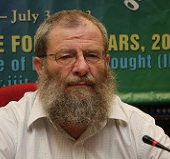
Yahya M. Michot (Belgium, 1952) joined Hartford Seminary in 2008 as Professor of Islamic Studies and Christian-Muslim Relations. He is also the current editor of the journal “The Muslim World” edited by the Seminary. From 1983 to 1997, he taught Arabic philosophy, language, history and literature in Louvain (Belgium) and, from 1998 to 2008, Islamic theology and Arabic in Oxford (UK). He has published numerous books and articles about Islamic classical thought, drugs in Muslim societies and Islam in the West, including “IBN SÎNÂ. Lettre au vizir Abû Sa‘d” (Arabic edition & translation, 2000), “AVICENNE. Réfutation de l’astrologie” (Arabic edition & translation, 2006), “Ibn Taymiyya: Muslims under non-Muslim Rule” (2006), “Ahmad al-Aqhisârî: Against Smoking. An Ottoman Manifesto” (Arabic edition & translation, 2010), “Musulmans en Europe” (2002), and the chapter “Revelation” in the “Cambridge Companion to Classical Islamic Theology” (2008). Dr. Michot has served as a consultant to various universities, international organizations and official bodies in the UK. From 1995 to 1998, he was president of the Higher Council of Muslims in Belgium. He is internationally recognized as a specialist of both the Iranian philosopher Avicenna (d. 1037) and the Syrian theologian-mufti Ibn Taymiyya (d. 1328). He has also explored the influence of Avicenna on later Sunnism and English thought, that of Ibn Taymiyya on pre-Wahhâbi Ottoman puritanism and modern Islamism.
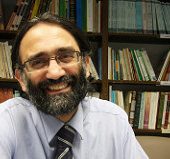
Najib George Awad Najib George Awad is a Syrian Arab Christian theologian and poet. He is the Associate Professor of Christian Theology and the Director of the International PhD Program in Hartford Seminary, CT. He is the author of God, Man and Evil: A Theologico-Existential Study (Arabic-2005), God Without a Face? On the Personal Individuation of the Holy Spirit (English, 2011), And Freedom Became a Public Square: Political, Sociological and Religious Overviews on the Arab Christians and the Arabic Spring (English, 2012), and Beyond Hierarchism: Trinitarian Theology, Postmodernity and the Notions of ‘Personhood’ and ‘Relationality’ (English, forthcoming 2013).
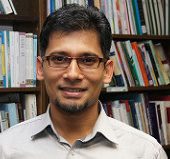
Syed Muhd Khairudin Aljunied is an Assistant Professor at the Faculty of Arts and Social Sciences, National University of Singapore. He is the author and editor of 6 books, which include Colonialism Violence and Muslims in Southeast Asia (London: Routledge, 2009) and Radicals: Protest and Mobilization in Colonial Malaya (Dekalb: Northern Illinois University Press, 2014 [forthcoming]). His research interests include Colonialism and Postcolonialism, Identity Politics, Minority Rights and Movements, Muslim-non-Muslim Relations, with a special focus on Southeast Asia.
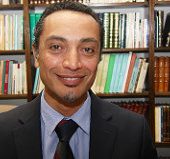
Mohamed Mosaad Abdelaziz Mohamed is Assistant Professor of Religious Studies at Northern Arizona University. He graduated from School of Medicine Cairo University, worked as an orthopedist, received another degree in psychiatry and neurology and worked as psychiatrist, received a master in anthropology and sociology from the American University in Cairo, and a PhD in religious studies from Emory University. He also had a traditional education of the Islamic scripture, law and theology. He founded the Egyptian Interfaith Association, co-founded the Middle East Abrahamic Forum, the only regional organization that has members of the three Abrahamic faiths, is a member of the Interfaith Committee of the World Council of Churches and served as the Middle East and North Africa Coordinator of the United Religions Initiative, URI, as well as a member of URI Global Board. In addition, he worked as a freelance writer, a translator, an editor of Microsoft magazine in Arabic, a multimedia program designer, a director of software marketing department, and a producer of three TV talk shows, among other odd jobs.
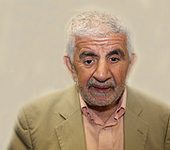
Mahmoud M. Ayoub is Faculty Associate in Islam and Christian-Muslim Relations at Hartford Seminary in Hartford, CT. He was born in South Lebanon. He received his education at the American University of Beirut (BA, Philosophy, 1964), the University of Pennsylvania (M.A., Religious Thought, 1966), and Harvard University (Ph.D., History of Religion, 1975). From 1988 to 2008, he was a Professor and director of Islamic Studies in the Department of Religion, Temple University, Philadelphia, an Adjunct Professor at the Duncan Black Macdonald Center, Hartford Seminary, Connecticut, a Research Fellow at the Middle East Center, University of Pennsylvania and the Tolson visiting professor at the Pacific School of Religion, Berkeley California. In 1998, Dr. Ayoub helped devise and launch a graduate M.A. level program in Muslim-Christian relations and comparative religion for the Centre for Christian-Muslim Studies, University of Balamand, Lebanon, and since the Spring of 1999, has been its visiting professor. Mahmoud Ayoub has also previously taught at San Diego State University, the University of Toronto, and McGill University.
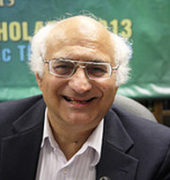
Imad-ad-Dean Ahmad, Ph.D., is an internationally known interdisciplinary scientist of Palestinian descent, born at sea and raised in the United States. He is author of Signs in the Heavens: A Muslim Astronomer’s Perspective on Religion and Science, a senior lecturer at the University of Maryland and he teaches a course on Islamic religion, history and civilization at Wesley Theological Seminary. He also teaches a course on Islamic history and civilization for the summer students program at the International Institute of Islamic Thought. Dr. Ahmad has received the “Star Cup for Outstanding Public Service” award from the Montgomery County Civic Federation, the “Champion of Democracy Award” from Marylanders for Democracy, the “Samuel P. Chase Freedom Award” from the Libertarian Party of Maryland, and the “Sentinel Award” from the Montgomery County Civic Federation.
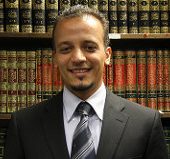
Abadir M. Ibrahim is a J.S.D. Candidate at St. Thomas University School of Law LL.M./J.S.D. Program in Intercultural Human Rights and has two LL.M. degrees one in international law and one in human rights law. His experience encompasses work in both practical and academic settings including in advocacy. As a legal practitioner he has had a working experience with criminal law and procedure and has some experience in labor rights and constitutional litigation. His academic experience includes teaching, among others, human rights law, private international law, constitutional law, and legal history. He currently lectures at St. Thomas University School of Law on the topic of human rights and religion in relation to Islamic law-ethics. He has published in academic journals on a variety of human rights and international law topics and his advocacy publications also extend to non-academic outlets. His current research interests include democratization and human rights in Islam.
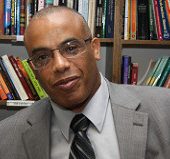
Seifudein Adem is Associate Professor of Political Science and Associate Director, Institute of Global Cultural Studies, SUNY Binghamton. He has taught at Addis Ababa University (Ethiopia) from 1988 to 1992 and University of Tsukuba (Japan) from 2000-2005. He is author and editor of more than half a dozen books including Hegemony and Discourse (University Press of America, 2005) and Anarchy, Order and Power in World Politics (Ashgate, 2002). Dr. Adem’s academic works have appeared in several academic journals including African Studies Review, Journal of Black Studies, African Studies Quarterly, Review of International Sociology, Global Development Studies, Japanese Journal of Political Science, Alternatives: Turkish Journal of International Relations, International Journal of Contemporary Iraqi Studies, and so forth. Dr. Adem is also a former president of New York African Studies Association.
